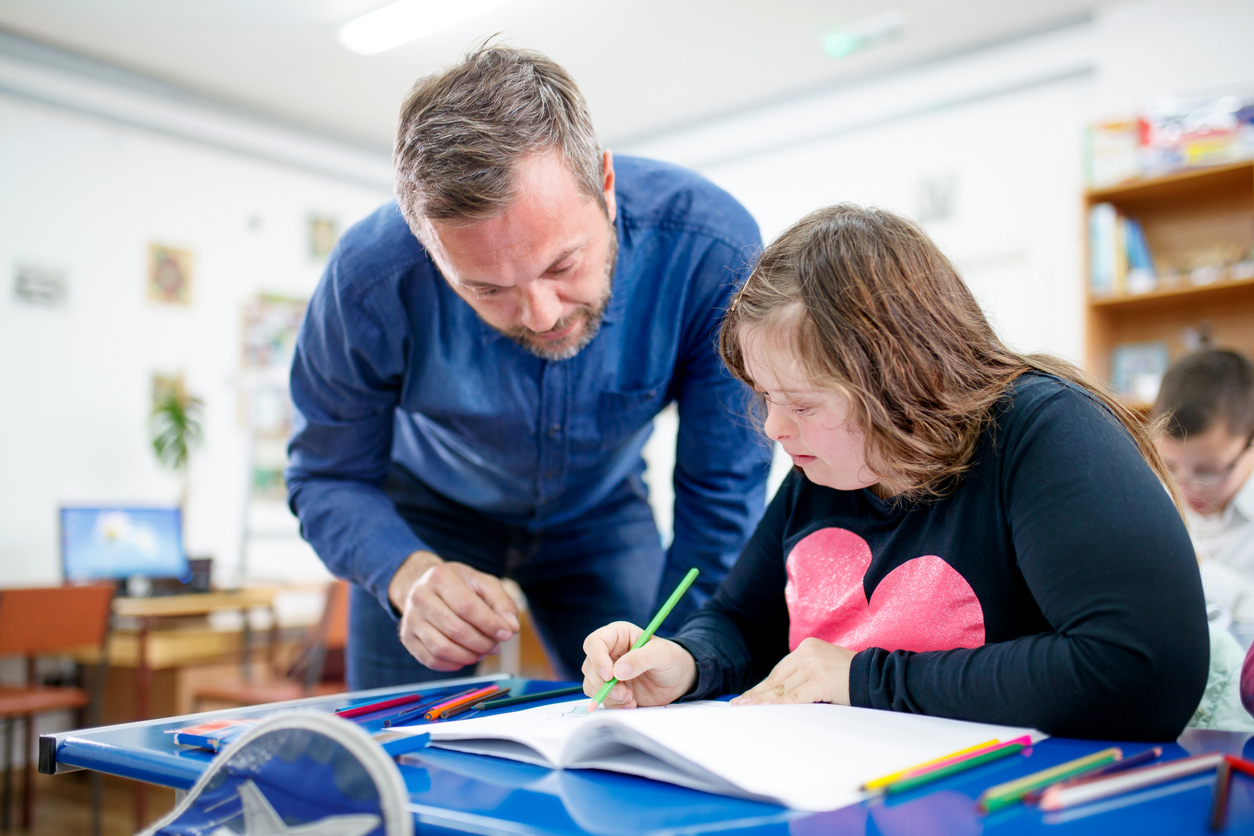2 min read
Should You Still Consider Higher Education with a Learning Disorder?
If you have a learning disorder, it may feel discouraging sometimes to think about earning an education. Yet, you know that academics can help to...
What is considered a learning disorder?
When a person has a difficult time learning new things or adopting skills (academic or personal), it could indicate a learning disorder. This does not necessarily mean the person’s intelligence is afflicted but can present challenges in education, comprehension, coordination, and behavior. Although learning disorders occur and are recognized often in childhood, adults are impacted by learning disabilities as well. Challenges in learning or critical thinking can carry into adulthood, and affect adults in different ways, such as poor decision-making, memory issues, or difficulty completing tasks or responsibilities. Learning disorders can also run in families. Although learning disorders affect various academic subjects, they can also interfere with a person’s ability to interact socially and make or keep personal connections.
According to a recent study, 15% of Americans have some sort of learning disorder.
What are some examples of learning disorders?
Learning disabilities can affect more than just learning new topics in school- but also influence social behavior and how the person cooperates and associates with others. Common learning disorders include:
-Attention Deficit/Hyperactivity Disorder (ADHD)-difficulty focusing/hyperactive behavior
-Dyslexia-Difficulty understanding how to read, write, and learn languages
-Dyspraxia- Difficulty with coordination, movement, speech, and language
-Dyscalculia- Challenges learning math, numbers, and information
-Dysgraphia- Challenges with handwriting and motor skills
-Functioning- Difficulty planning, organizing, and managing time
-Non-Verbal- Challenges with reading social cues and body language
-Oral/Written Language- Difficulty comprehending speech or spoken language
Since these are essential components of education and learning, this is why disorders are often identified at an earlier age. Yet, as students get older, these complications develop and continue to create learning obstacles.
What support is available for learning disorders?
Although learning disorders are a permanent condition, support such as early intervention, and academic programs for disabilities are helpful in reducing these challenges. If learning difficulty is observed by a parent or teacher, it is important to further evaluate the person to accurately determine how the disorder may be causing disruption. The sooner a disability is detected, the sooner it can be properly diagnosed and treated accordingly. Parents can better assist by monitoring their child’s development and staying informed and updated on their educational progress. Schools, healthcare providers, and parents often work in unison to provide the best treatment plan for the disorder.
Leading a healthy life despite learning disorders
Even though learning disabilities can be stressful and difficult to live with, treatment plans and support can help those with disorders to have a better quality of life. As these individuals get older, social relationships become more relevant and consistently working towards building friendships and connections can be beneficial. Having friendships and romantic relationships is a great way to not only create connections with others but to have a happier outlook on life, knowing you have others to support you and care about your well-being.
Focus EduSolutions recognizes the challenges that learning disorders pose and we offer a new way for those with similar difficulties to connect in a comfortable space.
Hello, It’s Me is an app designed specifically for those who may have faced setbacks in their personal life and are looking for a new way to connect with those who can relate to their surroundings. For more details on how the app works and how it can help you or someone you know, visit us today at https://hello-itsme.com/
References
CDC (2022, July 26). Developmental Disabilities. Centers for Disease Control Prevention. Retrieved August 15, 2023, from https://www.cdc.gov/ncbddd/developmentaldisabilities/learning-disorder.html#:~:text=Having%20a%20learning%20disorder%20means,after%20first%20or%20second%20grade
Clark, A., MA., MS., & Rein, J., MA. (2023). Signs of learning and thinking differences in adults. Understood. Retrieved August 15, 2023, from https://www.understood.org/en/articles/checklist-the-signs-of-learning-and-thinking-differences-in-adults
LDA (2023). Types of Learning Disabilities. Learning Disabilities Association of America. Retrieved August 15, 2023, from https://ldaamerica.org/types-of-learning-disabilities/
Kesherim, R. (2023, July 23). 31 Learning Disabilities Statistics, Prevalence & Facts. Supportive Care ABA. Retrieved August 15, 2023, from https://www.supportivecareaba.com/statistics/learning-disabilities#:~:text=Learning%20Disabilities%20Prevalence,United%20States%20with%20learning%20disabilities.

2 min read
If you have a learning disorder, it may feel discouraging sometimes to think about earning an education. Yet, you know that academics can help to...

2 min read
Did you know that over 42 million Americans suffer from some type of disability or disorder as of 2021? Although employment rates show an increase in...